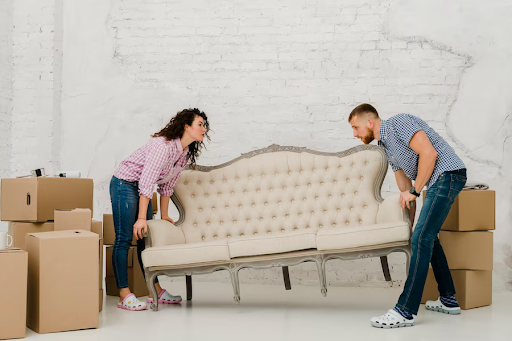If you’ve recently upgraded your home décor, downsized, or are simply decluttering, you’ve likely asked yourself: what to do with furniture I no longer want? Whether it’s a worn-out couch, a dated dining set, or surplus pieces after a renovation, unwanted furniture can quickly become a burden if not dealt with efficiently.
Fortunately, there are several practical and sustainable options available to Australians, from donating and selling to recycling and repurposing. This guide will walk you through your best options, helping you clear space in your home without sending everything to the landfill.
Donate Your Furniture to Those in Need
Give Furniture a Second Life
One of the most meaningful ways to offload unwanted furniture is through donation. Many non-profit organisations, community groups, and op shops welcome gently used furniture. Items like sofas, wardrobes, dining tables, and beds can find a new home with someone who truly needs them. Before donating, ensure your furniture is clean, safe, and in good condition. Most charities have guidelines about what they can and can’t accept, so it’s best to check their websites or give them a call.
Offer Locally Through Community Networks
If your item is too large or not accepted by charities, consider giving it away on local online platforms. Websites like Gumtree, Facebook Marketplace, and Freecycle allow you to list items for free and connect with people in your area who may need them. This is a great way to ensure your furniture gets reused and stays out of the landfill.
Sell Furniture That Still Has Value
Turn Clutter into Cash
If your furniture is still in good shape and has resale value, selling it online is a smart move. Australians are increasingly turning to second-hand furniture as a cost-effective and sustainable alternative to buying new.
Best platforms for selling second-hand furniture include:
- Facebook Marketplace
- Gumtree
- eBay
- Trading Post
Take clear photos, write honest descriptions, and set a fair price to improve your chances of a quick sale. Make sure to mention any flaws to avoid disputes and be ready to negotiate with buyers.
Consider Consignment or Second-Hand Dealers
If you don’t have the time to manage listings or meet buyers, consignment stores or second-hand dealers may be a better option. These businesses handle the sale for you and take a commission, making it more convenient while still getting some return.
Recycle Unusable or Damaged Furniture
Know What’s Recyclable
When furniture is broken, stained, or otherwise beyond repair, recycling is often the best solution. However, you can’t just toss everything in your yellow-lid bin. Instead, look into council hard rubbish collections or contact local recycling centres that accept furniture.
Timber, metal, and some plastics from furniture can often be recycled separately. Some councils also offer bulk waste collection or drop-off days for larger items.
Upcycle or Repurpose Creatively
For those who enjoy DIY, consider turning old furniture into something new. A tired wooden dresser might become a trendy bathroom vanity, or a broken chair could be transformed into a plant stand. Upcycling reduces waste and gives you a unique piece for your home.
Arrange Professional Furniture Removal Services
If you have large volumes of furniture or limited time, professional removal services can be a convenient solution. Some removalists even offer eco-friendly disposal or donation drop-offs.
In cities like Melbourne, Sydney, and Brisbane, there are services that specialise in removing unwanted furniture quickly and responsibly. These can be especially helpful during moves or major decluttering efforts.
Things to Consider Before Disposing of Furniture
Before you decide where your furniture should go, keep these things in mind:
- Condition: Is the piece usable, fixable, or completely broken?
- Value: Could it be sold or should it be given away?
- Transport: Do you have a way to deliver or move it?
- Environmental impact: Can it be recycled or reused?
Taking the time to sort through your items and match them with the right disposal method ensures you’re making the most responsible choice.
Conclusion: Clear Space While Adding Value
Knowing what to do with furniture I no longer want can turn a stressful task into a rewarding experience. Whether you choose to donate, sell, recycle, or hire help, each method offers a responsible way to let go of items while potentially helping others or even earning some cash.
If you’re preparing the house to sell, getting rid of excess furniture can also make your space appear cleaner, larger, and more appealing to buyers. A decluttered, well-presented home has been shown to sell faster and often at higher prices.
Taking action on your unwanted furniture now means a lighter, more organised home—and one step closer to a fresh start.

